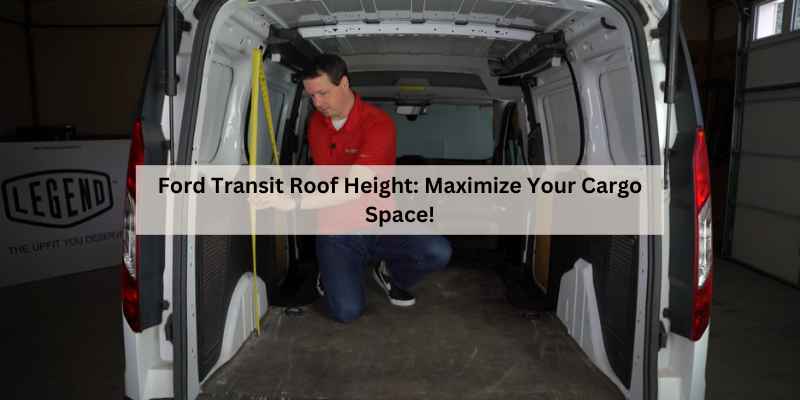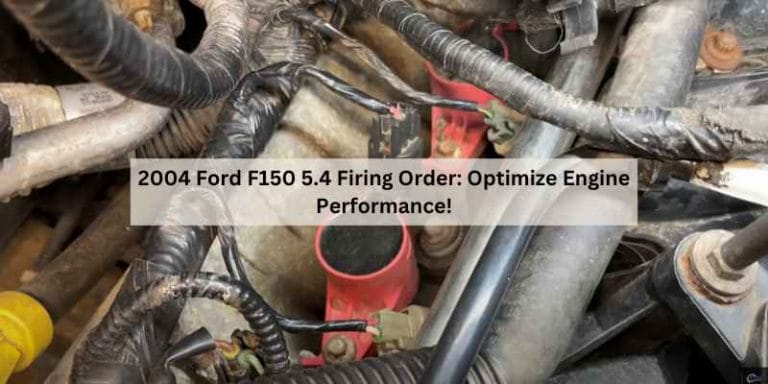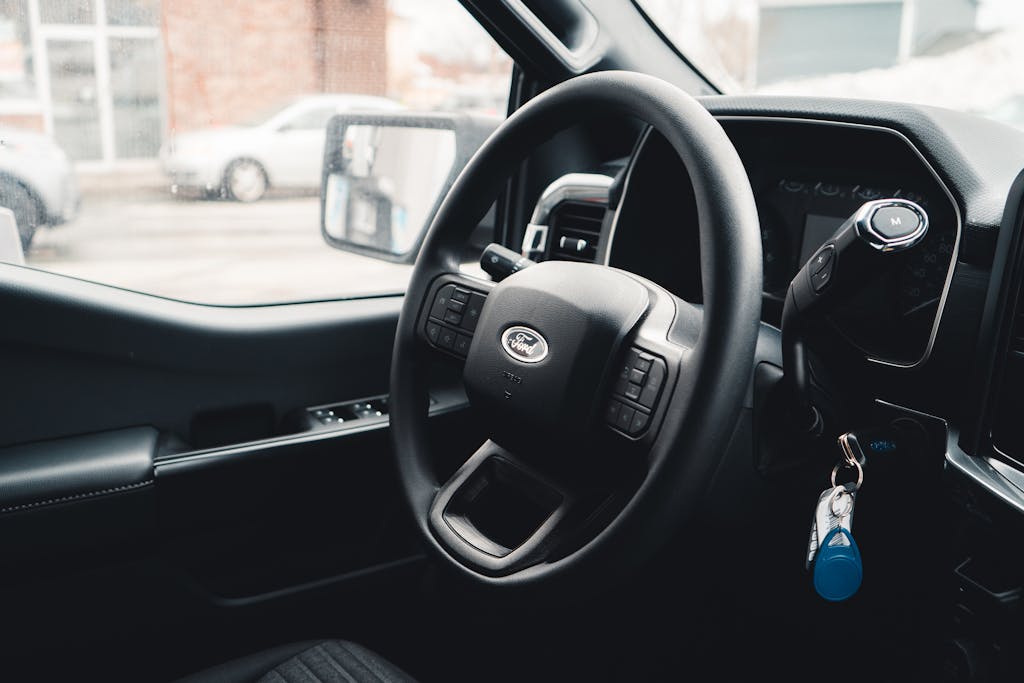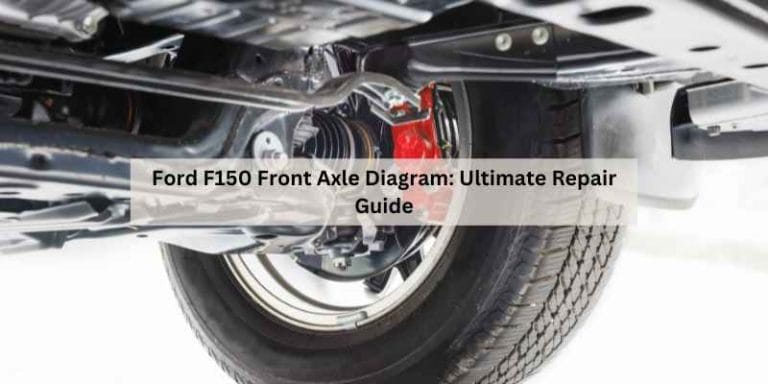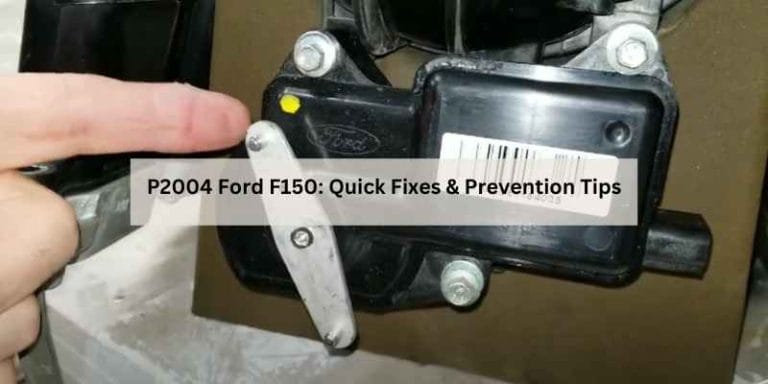Ford Transit Roof Height: Maximize Your Cargo Space!
The Ford Transit roof height varies by model. The low roof stands at 83.2 inches, the medium roof at 100.8 inches, and the high roof at 110.1 inches.
The Ford Transit is a versatile van popular for various applications, from commercial use to camper conversions. Its roof height options cater to different needs, ensuring ample space for cargo and passengers. The low roof variant is ideal for urban driving and parking, while the medium and high roofs offer increased interior space for taller individuals or equipment.
Understanding the roof heights is essential for selecting the right model for your specific requirements. Whether you’re transporting goods or planning a road trip, the Ford Transit provides flexibility and functionality in a reliable package.
Introduction To Ford Transit Roof Heights
The Ford Transit offers various roof heights, enhancing its versatility. Higher roofs provide more cargo space. This is especially beneficial for businesses needing to transport large items. The extra height also allows for easier movement inside the van.
Here are the types of Ford Transit roofs:
| Roof Type | Interior Height | Ideal Use |
|---|---|---|
| Low Roof | 56.9 inches | City driving, compact loads |
| Medium Roof | 72 inches | General cargo, comfortable standing |
| High Roof | 81.5 inches | Max cargo space, tall items |
Choosing the right roof height can greatly impact efficiency and comfort while driving.
Comparing Roof Heights
The Ford Transit offers three roof heights: Low, Medium, and High. Each height serves different needs.
Low Roof: This option has a height of about 56 inches. It is ideal for city driving and parking in low garages. Best for those who need easy access without tall cargo.
Medium Roof: Height reaches 72 inches, providing a good balance. This height is suitable for most users, allowing for standing room while maintaining efficiency. It’s perfect for both work and leisure.
High Roof: At 81 inches, this option maximizes vertical space. It is great for taller individuals and those needing to carry large equipment. It enhances comfort and accessibility significantly.
Dimensions And Specifications
The Ford Transit offers various roof heights, impacting interior and cargo space. The interior height varies across models. The low roof provides about 56.9 inches of height. In contrast, the medium roof offers 72 inches, while the high roof reaches 81.5 inches.
These differences significantly influence cargo volume. A high roof allows for more vertical space, making it easier to load tall items. The cargo capacity increases with height, ensuring better utilization of the van.
| Model | Interior Height | Cargo Volume |
|---|---|---|
| Low Roof | 56.9 inches | 246.7 cubic feet |
| Medium Roof | 72 inches | 315.2 cubic feet |
| High Roof | 81.5 inches | 404.3 cubic feet |
Exterior dimensions also vary. Overall length, width, and height shift based on the model chosen. Understanding these specifications helps select the right Ford Transit for specific needs.
Choosing The Right Roof For Your Needs
Choosing the right roof for your needs is vital. Cargo considerations play a significant role. Height restrictions can limit where you park. A high roof allows for taller cargo but may not fit in all garages.
Consider the fuel economy related to roof height. Typically, a lower roof can improve fuel efficiency. However, the difference may not be drastic. Weight and aerodynamics also affect fuel consumption. Always think about the type of cargo you will carry.
| Roof Height | Pros | Cons |
|---|---|---|
| Low Roof | Better fuel economy | Limited cargo height |
| Medium Roof | Balanced cargo space | May still have height restrictions |
| High Roof | Max cargo space | Lower fuel efficiency |
Customization And Conversion Options
Customization and conversion options for the Ford Transit offer great flexibility. Upfitting for cargo is essential for maximizing space. Shelving, racks, and storage units can be added to enhance utility.
Conversion into campervans is becoming popular. Many choose to add beds, kitchens, and bathrooms for comfort. This makes the Transit an excellent choice for road trips.
Aftermarket roof modifications can increase interior space. High roofs provide extra headroom for standing. A pop-top roof is another option for added versatility.
| Modification Type | Benefits |
|---|---|
| Upfitting for Cargo | Maximizes storage and organization |
| Campervan Conversion | Enhances comfort for travel |
| Aftermarket Roof Modifications | Increases headroom and versatility |
Real-world Applications
Many businesses choose the Ford Transit for its versatility. High roof models allow for easy movement inside the van. This is especially useful for van life enthusiasts transforming their vehicles. They create cozy living spaces with enough headroom for comfort.
In logistics, companies rely on the Transit for efficient operations. Fleet managers appreciate the high roof for loading and unloading goods easily. The spacious interior can accommodate various equipment, making it suitable for delivery services.
| Application | Benefits |
|---|---|
| Van Life | Comfortable living space and easy access |
| Logistics | Efficient loading and spacious interior |
| Fleet Operations | Versatile design for various business needs |
Maintenance And Care
Routine checks are essential for all Ford Transit roof heights. Inspect seals and gaskets regularly to prevent leaks. Check for dents or scratches on the roof surface, especially for high roofs. Ensure that the roof supports are secure and free from rust.
Height-related wear and tear can occur. High roofs may experience more wind resistance, leading to potential damage. Low roofs are easier to maintain but still need attention. Always be cautious when washing the roof to avoid scratches.
For longevity, consider these tips: Apply protective coatings to the roof surface. Avoid overloading the vehicle to reduce stress on the roof. Regularly clean the roof to prevent debris buildup. Use a soft brush to avoid scratches during cleaning.
Conclusion: Maximizing Your Ford Transit
Understanding the Ford Transit roof height is essential for maximizing utility. The high roof option offers ample vertical space for standing. This feature is ideal for businesses needing to load tall items efficiently.
Future trends indicate a rise in van roof heights. Manufacturers aim to enhance cargo capacity and flexibility. This trend responds to growing consumer demands for more space.
Making the most of your cargo space involves smart organization. Using shelves and storage bins can optimize every inch. Efficient use of space helps improve load management and accessibility.
Investing in a Ford Transit with the right roof height enhances functionality. Prioritize your needs to choose the most suitable option.
Frequently Asked Questions
How Tall Is A Ford Transit 350 Medium Roof?
The Ford Transit 350 Medium Roof stands at approximately 82. 2 inches tall, which is about 6 feet 10 inches. This height provides ample space for various applications, including cargo and passenger transport. Ensure to check specific model variations for exact measurements.
How Tall Is A Ford Transit 250 High Roof?
The Ford Transit 250 high roof measures approximately 110. 1 inches tall, or about 9. 2 feet. This height provides ample interior space for various cargo and passenger needs.
How Tall Is The Ford Transit 150 Low Roof?
The Ford Transit 150 low roof stands at 83. 6 inches tall, which is approximately 6. 95 feet. This height makes it suitable for various urban settings and parking structures.
How Tall Is A 2017 Ford Transit High Roof?
The 2017 Ford Transit high roof measures 110. 1 inches tall, or approximately 9. 2 feet. This height provides ample space for various cargo and conversion options.
Conclusion
Choosing the right Ford Transit roof height is crucial for your needs. Whether you prioritize cargo space or ease of access, understanding the dimensions helps you make an informed decision. With options ranging from low to high roofs, there’s a perfect fit for everyone.
Your ideal van awaits!

